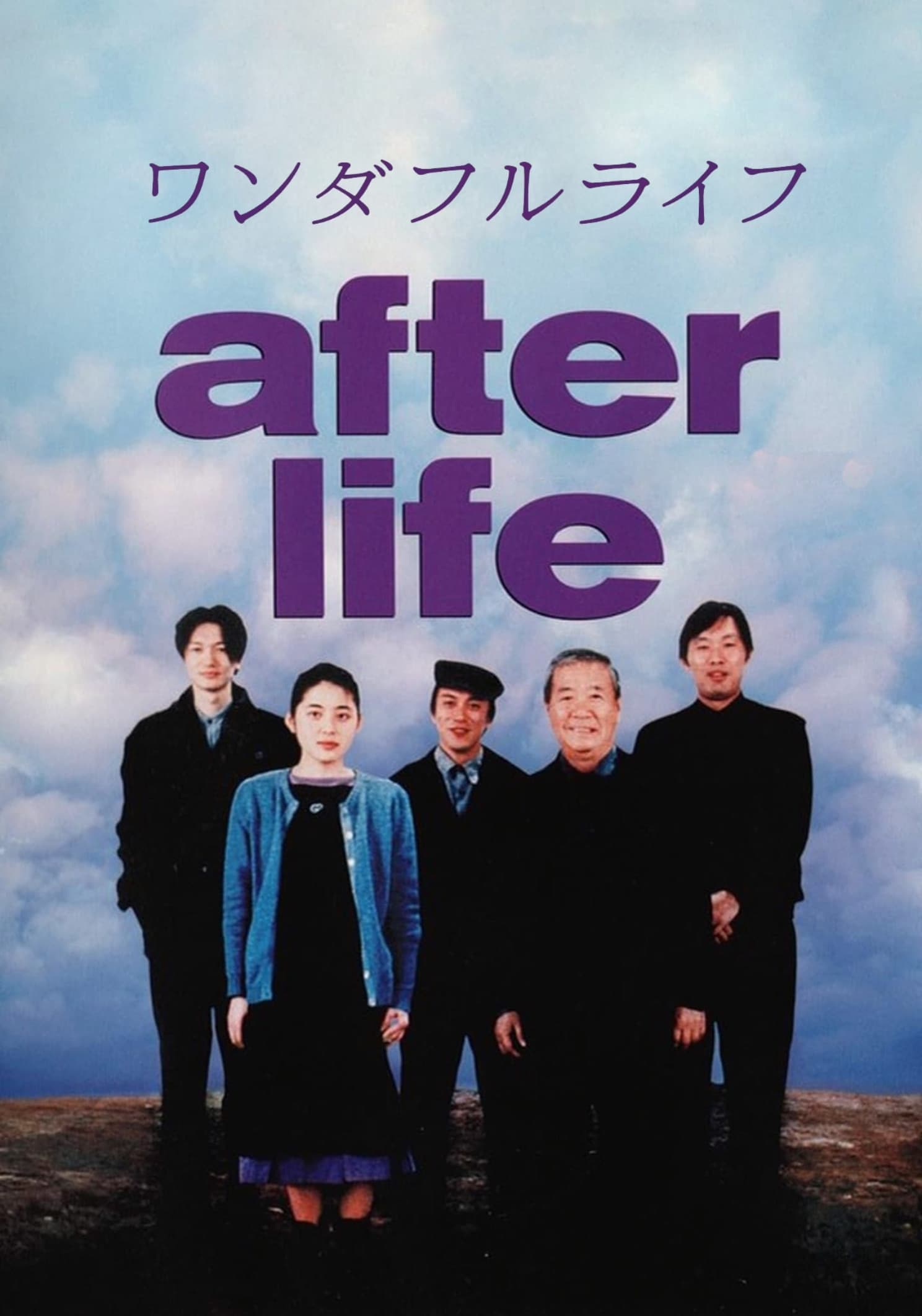

Filmkritiken
After Life
| released | 17.04.1999 |
| duration | 1 hour 59 minutes |
| genre | science fiction, drama |
| director | Hirokazu Kore-eda |
| cast | Arata Iura, Erika Oda, Susumu Terajima |
| screenplay | Hirokazu Kore-eda |
| score | Yasuhiro Kasamatsu |


Quelle: Engine Film
After Life
9 / 10
“There will come a time in your life when you ask yourself a series of questions: Am I happy with who I am? Am I happy with the people around me? Am I happy with what I'm doing? Am I happy with the way my life is going?”
Do I have a favorite memory? How does it describe my life? Is it a wholesome culmination of my experience and existence or a simple, yet definite farewell to all the bad things that happened to me? These confrontational questions emanating from both Underground Resistance’s self-reflective, hypnotic landmark track “Transition” from 2002 and Hirokazu Kore-eda’s surreal semi-documentary drama After Life from 1998 shape and help understand the intermediate state between life and death that the Japanese director calmly draws.
Every week, a bureau located in front of the beyond welcomes a new group of recently deceased people and gives each person the task of choosing one distinct moment from all their years spent on Planet Earth which he or she wants to keep for eternity. All the other memories will be deleted. They have three days to make their choice after which the three advisors of the bureau have three days to reenact their respective memory at a studio set which is then immortalized in a motion picture. On the final day, these visualized memories are presented to the group in a screening room as an act of paying tribute and saying goodbye to their lives.
Three days to find one particular moment of your long- or short-lasting life most certainly feels like an impossible task to fulfil. There’s an immediate sense of realization and heavy definiteness loading the frames as the film dives into the aftermath. Kore-eda steadily reduces the weight, eases the atmosphere and makes the task more accessible by comparing the memory to the film and intentionally creates the extraction process in order to let viewers embrace the final step. He not only pays homage to the life, but also to the making of a film through the reenactments. Like in journalistic fashion, the personnel at the bureau asks the persons about their defining memory, when and where it took place, what went through the person’s mindset and who was with them at the time. It’s interesting to observe the different takes to a possible answer. The editing and content of the various conversations thematically flow from one person to the next.
From taciturnity, excessive thinking and denial to nostalgia and openness, some people are able to find a quick answer while others struggle a lot as the time mercilessly approaches the deadline. To give them some help, the advisors share videotapes of a person’s life or photos in order to specify the memory, but they also encourage people to revise their answer if the memory feels too common or unrealistic. It’s not a plain excuse for the bureau’s limited equipment and technology to reenact the possible scenarios, but they make clear that the people should make a wise decision on the selected memory as it stays forever with them.
Why does it have to be only one memory? Why do you have to send all the other memories to oblivion? After Life justifies the selection process as the ultimate act of minimalism for your life, stripping off all the emotional weight, the guilt, the bad luck and the anger. Relief through the positive remnants of yourself; everlasting happiness, even if it’s played in a loop, is Kore-eda’s peaceful approach to the transition from life to death.
Perhaps it’s very fitting for this instance that the advisors are there to create a transition from memory to film. When thinking about one certain moment of your life, a memory very much plays out like a motion picture which is constantly altering in length and in the depth of detail. No matter how much the frames are mutating when you revisit a memory over and over, its core elements are still recognizable. It’s the advisors’ task to extract these core elements which results in a huge amount of production – from the interview, the research, the props to the correct setting, lighting and an eye for the details – as they welcome more than a dozen of new arrivals, each with one memory to be reenacted on the set until the week ends.
However, one of the advisors named Takashi (Arata Iura) slowly comes into a conflict with himself as Watanabe (Taketoshi Naito), one of the interviewees from the new group, recapitulates his life. Takashi starts to feel a connection to this man as the interview moves on, an impression which is further strengthened by the video tapes of Watanabe’s life and the eventual decision of the elder man. It’s a beautiful story arc which is carefully constructed around the bridge to the beyond lying above the valley of memories while portraying the role of the bureau and its employees.
The way Kore-eda takes on the connections between memory and film and between life and death, is very reduced and grounded. The bright entrance of the bureau indicates a heaven-like gateway from which the new arrivals come from and the foggy windows of the interview rooms show the fading impressions of the real world. In order to keep the documentary approach and the neutrality intact, the camera is positioned on an eye level during the interview sessions and although it’s a frontal angle that almost pierces through the new arrivals’ head, the cinematography in combination with the calm conversations and the light setting never feels intrusive. Thankfully, the atmosphere is devoid of any effects and non-diegetic music as it would seriously manipulate the classification of the people’s memories. Since it takes place in a realm between life and death, it’s an act of respect to let the people wander through their own library of moments freely for the last time.
Coming back to the opening lines from Underground Resistance’s “Transition”, what does the techno track have in common with Kore-eda’s film? For one, the formerly masked motor city collective established itself in the early 90’s as a political movement and musical safe haven for disregarded black Americans in and around Detroit, giving them hope and reassurance amidst racism, the downfall of the automobile industry, stagnating infrastructure and many other factors through the power of music and its medium of vinyl. Both works want to take away the fear from the future and in the case of After Life, the fear of forgetting everything that a character is made of, except for the favorite memory captured on a reel of film, the favorite memory about yourself.
If UR’s “Transition” marks a point of contemplating one’s current life in order to paint the present and the near future in promising, vibrant colors, then After Life draws a line on the existence and provides a platform for the contemplation of the past and the present as well as the celebration of life. Do I have a favorite memory? It’s hard to choose one for now, but this thoroughly relaxing film – which moves a bit too gently at times – and UR’s verses serve as a great guideline to be at peace within yourself, one day… when you make your transition.
| film | After Life |
| released | 17.04.1999 |
| duration | 1 hour 59 minutes |
| genre | science fiction, drama |
| director | Hirokazu Kore-eda |
| cast | Arata Iura, Erika Oda, Susumu Terajima |
| screenplay | Hirokazu Kore-eda |
| score | Yasuhiro Kasamatsu |


